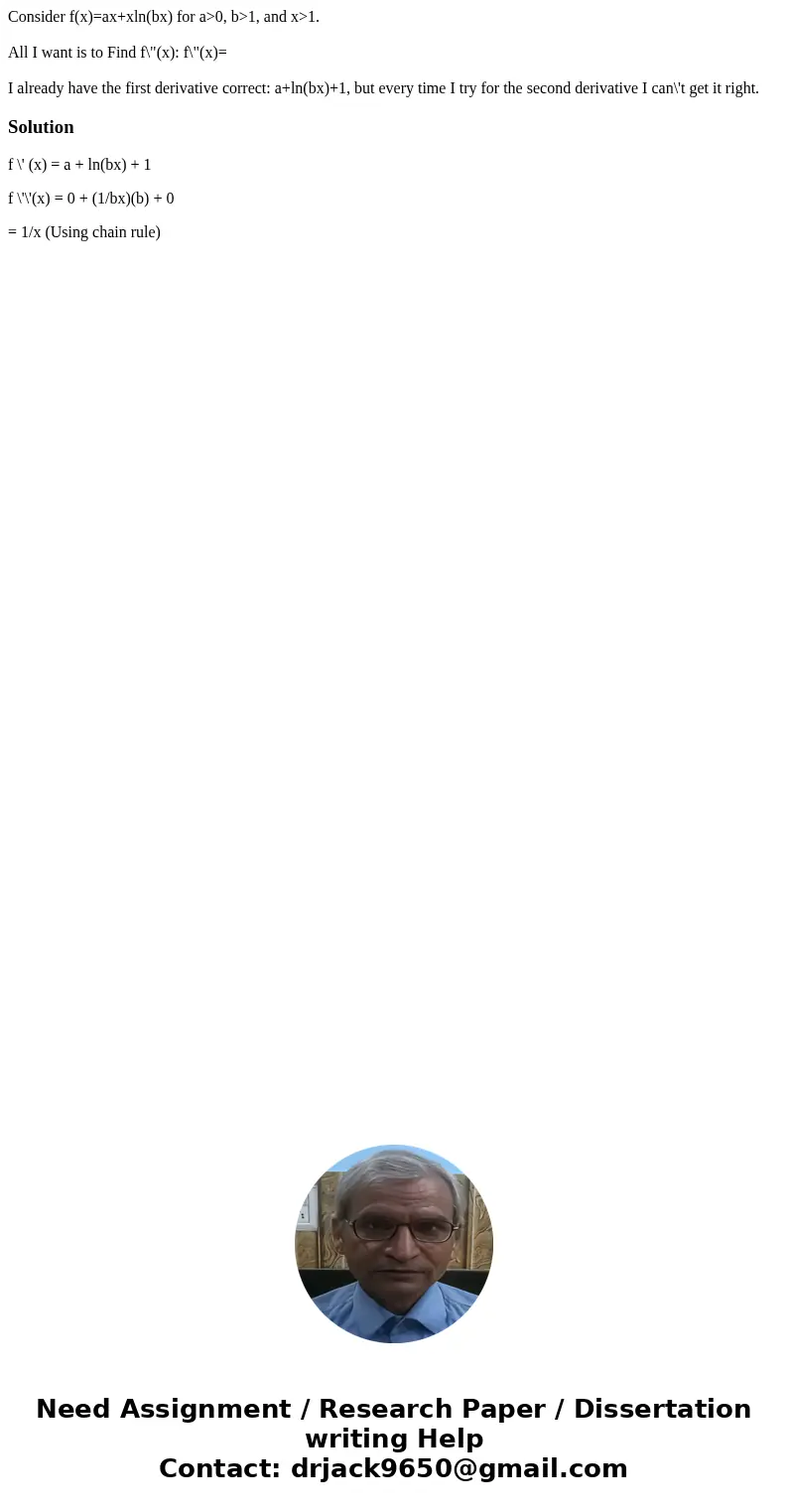Consider fxaxxlnbx for a0 b1 and x1 All I want is to Find fx
Consider f(x)=ax+xln(bx) for a>0, b>1, and x>1.
All I want is to Find f\"(x): f\"(x)=
I already have the first derivative correct: a+ln(bx)+1, but every time I try for the second derivative I can\'t get it right.
All I want is to Find f\"(x): f\"(x)=
I already have the first derivative correct: a+ln(bx)+1, but every time I try for the second derivative I can\'t get it right.
Solution
f \' (x) = a + ln(bx) + 1
f \'\'(x) = 0 + (1/bx)(b) + 0
= 1/x (Using chain rule)

 Homework Sourse
Homework Sourse